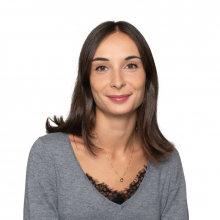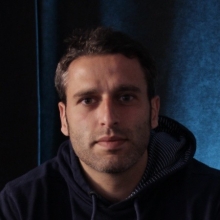
Let's be honest, access to public funding is still a real path strewn with pitfalls in France... If the search for public funding, the understanding of their mechanisms, the drafting and the closing are time consuming; it remains a MUST HAVE step in the development of your project.
Bpifrance, also known as French national public bank, offers a full package of funding concerning innovation.
And to start well, we will give you information concerning the 2 « stars » in the grant area : Bourse French Tech (BFT), and Paris Innovation Amorçage (PIA) !
DEFINITION
The Bourse French Tech and Paris Innovation Amorçage are grants that go up to €30,000. They can cover up to 70% of eligible expenses and the grant’s purpose is to participate in the expenses of young innovative projects directly linked to feasibility studies in some fields : technical, market, design, patentability…
Covering up to 70% of a set of expenses, what does that mean?
Bpifrance only intervenes in a logic of co-financing. This means it will finance a part of your project, but expects the company to have the capacity to finance the other part of the project. In the case of an intervention rate of 70%, to obtain the maximum envelope of € 30,000, it will be necessary to present a minimum expenditure of roughly €45,000 (the company has to be able to finance the remaining € 15,000).
Note : There is no retroactivity concerning the expenses. All the expenses related to the financial program must not have already been realized prior to the starting date of the program.
The BFT is a device operated by Bpifrance, while the PIA is a device operated by the City of Paris in cooperation with Bpifrance. It allows it to be slightly different from the BFT for companies registered Paris intramuros.
The PIA can finance feasibility expenses for companies up to three years of existence. The intervention rate is 70% for companies created for less than a year and 50% for companies between one and three years old.
ELIGIBILITY CRITERIA
BOURSE FRENCH TECH
- On the company : The company must be registered in France (excluding 75) for less than one year on the filing date. The company must be considered as a "Small Business" according to the European definition (<50 full-time jobs and turnover or total balance sheet <10M €).
- On the entrepreneur : the entrepreneur must be supported by a structure dedicated to innovative projects (incubators, support networks, accelerators, recognized associations, etc.).
Paris Innovation Amorçage
- On the company : The company must be registered in the 75 for less than three years on the filing date. It must also be incubated in an incubator labeled by the city of Paris (Paris & Co - incubators inside departement 75, Dauphine, ENSAM, ESPCI, ICM, Sc Po, Impulse Partner, Institut de la Vision, La Ruche, 104Factory, Paris Biotech Satné, WILLA and Pépinière 27).
In both cases (BFT or PIA), it is necessary to have sufficient funds : between €15k and €30k of equity to receive as much as a grant. If you are not familiar with this concept, here is an article detailing how to build your own funds (french version only).
Eligible projects:
- The project must be at a very young stage and still require a phase of technological "maturation and validation". Is the technology feasible? Is there a market for my project?
- The project must have a high growth potential and a technical/market différenciation.
ELIGIBLE EXPENSES:
All expenses, internal and external, which are directly related to program expenses :
- External costs: Support costs, intellectual property costs, feasibility, legal and market studies, design, search for partners, specific training, etc.
- Entrepreneur costs (Individuals, excluding PPs registered with the RCS or other registers depending on the activity carried out): time spent by the project leader, small investments, travel costs and registration fees for a trade fair, etc. . The inclusion of entrepreneur costs is limited to 50% of external costs without being able to exceed € 8,000.
- Internal costs: staff costs, fixed overheads, etc.
GUIDELINES AND TIPS :
Interested ? Contact us by mail to learn more about those grants !
